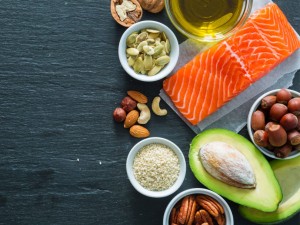Benefits of the Mediterranean Diet

Did you know? Olive oil is a big part of the Mediterranean diet.
Interested in improving your nutrition and overall health? Great! Below are some popular diets that have been around for quite some time. You’ve probably heard of most of them by now:
- South Beach
- Atkins
- Weight Watchers
- Jenny Craig
- Scarsdale
- Pritikin
- Keto
- Paleo
And the list goes on. Which one is best?
While many of these nutritional plans have helped people lose weight, they are still considered DIETS and do not always promote long term, sustainable and positive eating habits. However, there’s a proven eating plan with healthful benefits, that has been around for centuries, and while called a “diet”. it is really a lifestyle!
It’s a style of eating popular in the southern Mediterranean area. You’ll find it in Greece, Portugal, southern Italy, southern France and Spain. No wonder it’s called the “Mediterranean Diet.”
Interest in the Mediterranean diet began over 50 years ago. That’s when it was observed that coronary heart disease caused fewer deaths in Mediterranean countries. Subsequent studies determined that the Mediterranean diet is linked with reduced risk factors for cardiovascular disease.
This finding is significant since cardiovascular disease and heart related illnesses and deaths are the number one cause of death in the U.S.!!
Studies suggest that those who follow this diet enjoy these health benefits:
- Decreased risk for heart disease and cardiovascular conditions
- Lower risk for Alzheimer’s disease and dementia
- Higher life expectancy rate and better quality of life
- Decreased risk for certain types of cancer
So what makes the Mediterranean Diet unique?
The Key Components include:
- Whole, real unprocessed foods
- Daily consumption of vegetables and fruits
- Quality protein, specifically wild caught fish
- Whole grains (like rice or quinoa)
- Healthy fats, such as olive oil, avocado, and raw nuts
- Limited consumption of red meat, processed or packaged foods, refined sugars and grains

These foods provide lots of healthy fats, antioxidants, vitamins, minerals to provide the lowered risk of health conditions. Furthermore, it’s focus on complex carbs, fats and proteins provides sustainable energy, decreasing any blood sugar imbalances, energy crashes and cravings.
The essential fatty acids that are found in fish, avocado, nuts and olive oil provides nutrients for a healthy heart, and can actually protect against heart disease. Rather, inflammatory fats like canola/vegetable oils, fried foods, trans fats found in packaged items etc. actually increase your risk of disease.
The Mediterranean diet is delicious and healthy. Many who switch say they’ll never eat any other way. What does a typical day of eating look like?
Breakfast: Whole free range eggs, spinach and bell pepper (or other chopped veggie), avocado, sea salt and pepper
Lunch: Large salad with spring mix, cucumber, tomato, feta cheese, kalamata olives, chickpeas or white beans, carrots, topped with fish shrimp or chicken, plus balsamic vinegar and extra virgin olive oil.
Dinner: Wild caught fish (like salmon or mahi mahi), asparagus, broccoli, quinoa (or squash) and lemon
Snacks: Handful of walnuts and almonds, 1/2 avocado with sea salt, raw veggies with hummus, or dark chocolate
The Next Step
Start incorporating some of these foods into your daily diet. Also begin to decrease the amount of processed and inflammatory food “products” that you might be consuming. Soon you will start to feel the benefits of healthy eating habits and it will become a long term lifestyle for you!
